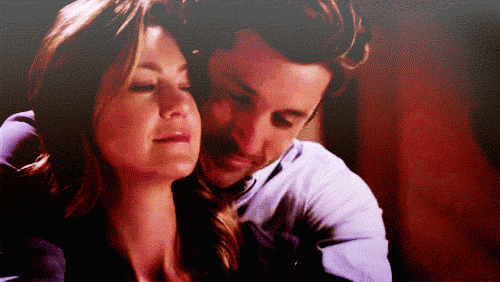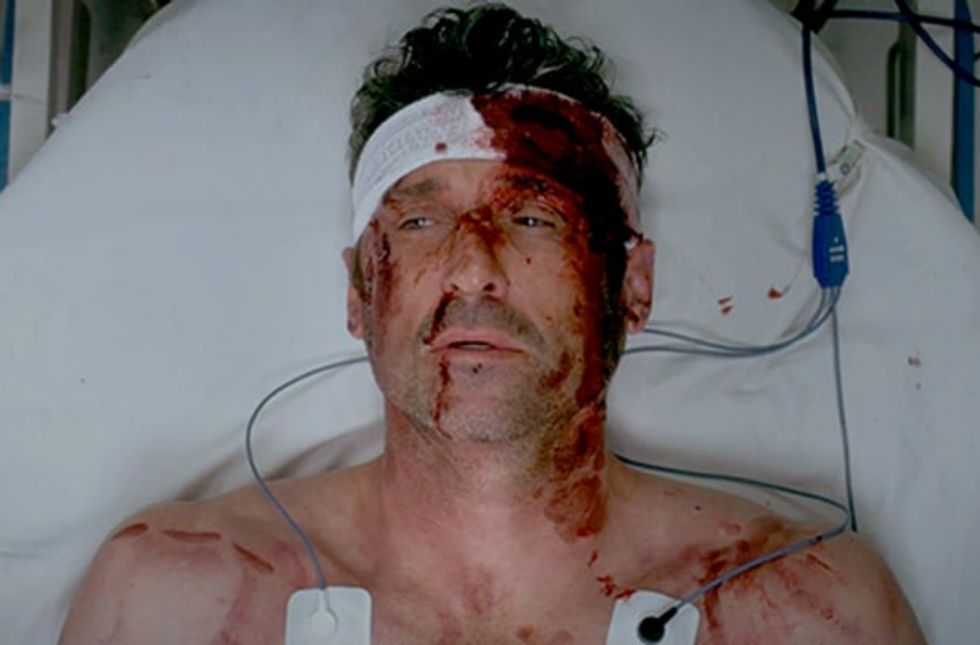When her husband, Derek Shepherd, moves away temporarily for work purposes, Meredith Grey is happy for the first time in years. She builds up a legendary streak of successful surgeries (somewhere in the neighborhood of 100) and plans a weekend trip to visit Derek, but chooses instead to spend the time watching TV and relaxing alone. She is giddy as she recounts this later. Derek eventually returns, telling Meredith that he can’t live without her. She replies, “I can live without you, but I don’t want to.” She loves him, but she doesn’t need him.
Four episodes later, Derek is dead, and Meredith soon returns to being happy — not what one would expect from a ten-year TV romance.
Shonda Rhimes has always been fond of killing off her characters, but she is particularly heavy-handed in Grey’s Anatomy. By Season 12, fatal anomalies — from various cancers and transportation accidents, to electric shock and gunshot wounds — have claimed at least ten members of the main and recurring casts. I admit that I have often doubted the significance of these deaths, thinking that they may be cheap tricks either to dramatically advance the plot, or to gracefully dispose of a character who was becoming irrelevant (cough, cough, George O’Malley).
However, Derek’s death holds implications for everyone at Grey Sloan Memorial Hospital, and for everyone who spends their days saving lives (in any capacity). Derek, one of the world’s top neurosurgeons, dies from none other than a brain injury on the operating table of doctors far inferior to himself.
He is conscious, but his injuries from the crash have rendered him unable to speak — as these surgeons make a series of wrong decisions, Derek fruitlessly shouts the correct treatment in his head. He knows he is going to die, and he alone has the power to save himself. In addition to this, he was only hit by a truck because he had pulled over to help four civilians who had been in a crash earlier that day. These phenomena hint at the ultimate futility of all human actions.
More subtly presented are the changes which occur for Meredith. In Season 12, mere months after the death of her husband and the father of her young children, Meredith says, sincerely, that she is happy. By default, Meredith has always been stressed, depressed — vaguely suicidal.
We never see her doing well for more than a few moments at a time. Yet, here she is, having overcome her crippling family issues enough to sit and speak openly to her sister, Maggie, about her own happiness.
Following her mother’s legacy, Meredith is the head of general surgery at Grey Sloan. She has three children, several lifelong friendships in place, and interns, residents, and peers who admire her. The love of her life is dead, and Meredith Grey is not a typical grieving widow. She is grieving, yes, but she is thriving.
Derek is presented as every girl’s dream — unmatched in surgical skill and ambition, devilishly handsome and charming, a good father, prone to romantic gestures.
But he was objectively a bad boyfriend/husband. He entered into their relationship while still married to Addison, consistently prioritized his career over Meredith’s, manipulated her emotionally, and waited far too long before stopping that kiss with his research assistant. He hurt her, and he would have continued to hurt her, but she kept going back to him.
In a way, death was the only way their story could have ended.
Meredith did love him, but she was better than him. He needed to be truly gone for her to know that. I admire this plotline because it is extremely atypical of Hollywood, showing an unexpected willingness on the producers’ part to compromise the idyllic “McDreamy” character in favor of healthy progress for the woman involved.


























